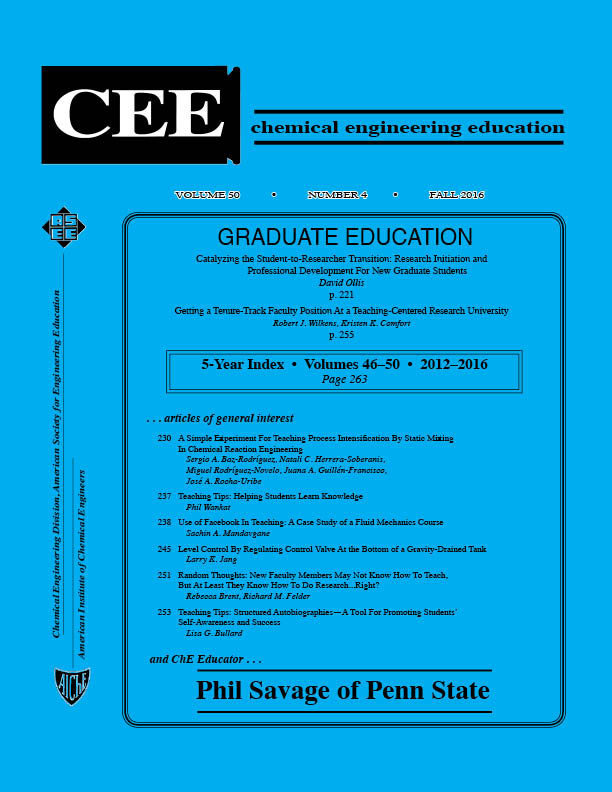Use of Facebook in Teaching: A Case Study of Fluid Mechanics Course
Abstract
Fluid mechanics (FM) is a core course of the Chemical, Mechanical, Civil, and Aerospace Engineering programs. Students have both theory and practical classes in FM. The general expectation is that students should be able to demonstrate the fundamentals learnt in theory and get hands-on experience during the lab course. In this regard, students were asked to make a video of application of FM in day-to-day life based on the fundamentals learnt in the classroom and to post it on the Facebook (FB) page entitled “Fluid Mechanics Videos.” For the first time, FB is used as a teaching–learning–assessment tool in the FM undergraduate course. The primary objective was to create interest and passion about chemical engineering among students. Students made videos on different topics of FM, including fluid statics, properties of fluid, applications of mass/momentum/energy equation, and flow through a porous medium. Students opined that they felt confident in designing a storage tank, pipe, and unit operations equipment (e.g., packed bed, fluidized bed, and agitator) after taking this assignment. Through this assignment, students were able to design and conduct experiments. In addition, it gave them a chance to assess their communication ability, work with multidisciplinary teams, and understand contemporary issues. The author was involved right from ideation to preparation of video to its final upload on FB. Based on this pilot study, it can be hypothesized that social networking sites (SNSs) can only supplement, enhance, and strengthen the traditional classroom process, but can never replace it. SNSs can be best used innovatively for assignment, homework, group project, preparatory class, and team activities.


